Jasmeet K Reen, director, Darlings: ‘You don’t make a film to change the world’
On her favourite films, making Darlings, and why it’s important for a director to stay true to her own voice
Tell me about your childhood.
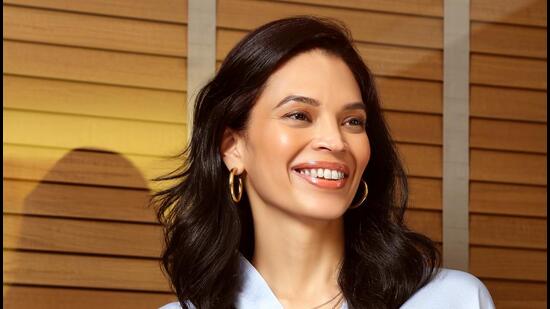
Childhood was basically figuring out what I wanted to do in life. I am a Bombay girl. I have a lot of family in Delhi and Chandigarh since I’m a Sardar but I was born and brought up in Bombay. As a child, I used to read a lot of books and watched a lot of films – both Bollywood and Hollywood. My dad used to watch a lot of classics so I grew up watching films by Hrishikesh Mukherjee and Guru Dutt and people like that. Good cinema. Also, commercial films like Sholay. My dad was also a huge Sahir fan. He used to listen to the radio and read books. He was a rooted man. I enjoyed watching films with him a lot but I never really wrote anything in my childhood though I was aware that there was a creative side to me.
I was good at studies. I started studying commerce, and then I began to study to be a CA. Then, when I was working at Ernst & Young as an intern, I remember speaking to my boss and telling him I couldn’t see myself doing this for the rest of my life. Then I tried my hand at advertising. I worked with McCann and with Ogilvy. But because I went with a CA background, I worked in client servicing and not in the creative department. I had joined as an intern but then they hired me. That’s when I could witness ad film production. At Ogilvy, I used to sometimes write ad films as well although I wasn’t a copywriter. I wrote dialogues for a Kodak ad at the time. Mahesh V and Rajiv Rao were the creative directors and they wrote the ad but I tweaked the dialogues. That was the first thing I ever wrote – not counting the several love letters when I was growing up. I quit Ogilvy and started assisting on ad films. My mother was rather upset about it because she couldn’t see a career for me as an AD (Assistant Director). Then I realised that being an advertising AD is great but to make a career, I needed to start working in Hindi films. I started assisting on feature films for a while. Then I thought, wait, enough is enough, I want to make my own film. So I stopped working as an AD. I knew I had to be able to write to make my own feature film. I wanted to direct but I also knew that I didn’t want to direct anything that came my way. I did a couple of short films and some music videos and I guess I screwed up. The ideas were not mine; I was only directing. That’s when I realised that the voice had to be mine. And to work on my voice, I had to, had to, write! That’s when I stopped everything else, took a break and started writing. This was also around the time I got married. So I took a two-year break just to write.
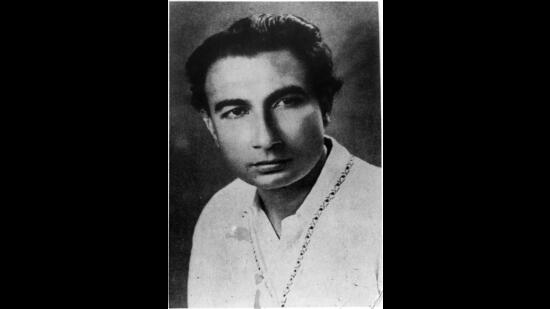
The first script I wrote was about Sahir Ludhianvi and Amrita Pritam’s story. I really, really wanted to make that film. It was a Sahir Ludhianvi biopic. I put my heart and soul into the project. I took Urdu classes, I met a lot of people, one of whom was Khayyam sahab when he was alive. He was fabulous. I spent evenings with him and many other people. I read a lot of Sahir’s work and basically spent a lot of time in research. I finished that script and wanted to direct it. Initially, Sanjay Leela Bhansali was one of the people who were supposed to produce it, among others. It didn’t work out and the film was never made but people really liked my script. So though the film wasn’t made, I started getting a lot of writing work. I enjoyed it a lot and started writing full time.
What kind of books do you like to read?
I read fiction mostly. Milan Kundera. Knut Hamson – I am very old school that way. Manto, for sure. Sahir, for sure. Murakami, I like a lot. I also read poetry. I like Bukowski; I like Neruda. Lots of Hindi poetry as well. Growing up, it was more Hindi books than English because more of them were at home. So luckily, I started reading in Devanagari. Then, of course, in college, I was hungry to explore other writers. A lot of Henry Miller, and Fyodor Dostoevsky followed later.
Was it a struggle to get in and then fit in Bollywood?
Yes, it was. You know, when I joined advertising, I wanted to be a copywriter but I worked in client servicing because I did not even tell myself that I was a writer. I was not sure. Then, when I worked as an AD, the only way to get work was to prove yourself. As a writer, especially a film writer, you need to get people to read your work. Even if the script you’re approaching people with doesn’t work out, some other conversation will. Of course, things take time. That is the struggle. But almost everyone has to do it. I assisted on five-six films. Zinda was one of them. Then, also a film made by Hansal Mehta. And with my first film script, the one about Sahir, I went door to door. Things don’t happen immediately; you have to be patient. Something that this industry has taught me is to be patient. And I have learnt it the hard way. My film on Sahir never got made but here I am today. And I believe, in a way, I am just starting out now. When you’re waiting for that first thing to happen, you can either wait or you can just keep writing. I chose the latter. One thing is for sure that if you can wake up and write every day and if you’re getting paid for it then there is no bigger joy than that. I feel I am lucky that way.
Do you think the industry is still against female filmmakers and writers?
No, I don’t think so. I am sure there are challenges but at least in my experience, I don’t think I have ever faced something gender-related. Just because I am a woman, I don’t get work or am judged a certain way? That has never happened to me. You know, a lot of it is about how you see yourself. If you get into a room, for instance, and think, “Hey, I am a woman. How can I narrate an action film?” then there is a problem. But I never thought that. I have written action films too. My first film that ever got released was Force 2! So you have to first accept that there is no problem and go about your job. And even if a problem occurs, then you deal with it. In my experience, this industry’s beauty and its problems are more or less the same for both male and female writers and filmmakers. It’s quite democratic that way.
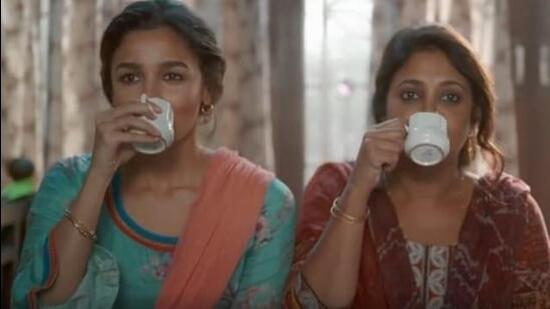
With Darlings, you have arrived. Run me through the journey of the film.
Darlings is fully fiction. It definitely doesn’t come from my life, nor is it based on anyone I know personally. Growing up, you have seen violence here and there and the shocking part is that everyone is okay with it. And this happens across social strata. I would never say that this happens only in a chawl in Byculla. So I had this idea back in the day. And I started speaking to different women about it. I would bring it up in conversations and understand people’s experiences and stories. That’s when I realised this problem is so common. Almost everyone knows a neighbour or someone who has suffered something like this. My husband is a very sophisticated, polite, well-behaved man from an army background.
When I got married, a distant aunt of mine just walked up to me one day and out of the blue, asked me: “Does your husband hit you?” I was shocked. I was like, “What did I or my husband do to make you believe that?” For her to ask me this question was bizarre. Then I thought about it and realised that the problem is not me or my husband; it’s her. This is certainly coming from one of her own life experiences or from that of someone she knows. People’s inability to leave a bad relationship is certainly a thing.
So in Darlings, I knew that the daughter has to decide to either stay or let go. It can’t be anyone else deciding this for her. Also, a lot of dark humour naturally found its way into the script. I didn’t want to preach. I just wanted to start the conversation about this subject and yet make an interesting film. I don’t think my film is going to change the world; I don’t think any film can change the world. It’s too much pressure on a film, honestly. So I wrote the story. Then I spent a lot of time working on each and every character. Even the parlour lady’s character, which is small but very important to me, was there from the beginning.
After I wrote the story, I approached Parvez (Shaikh), who I have written with before. I asked him if we could write the script together because comedy is a nice genre to collaborate with other writers on. He loved the idea and we wrote it together. Once the script was ready, I took it to Red Chillies and then we met Alia (Bhatt). We narrated the script to her. This was pre-pandemic around 2019 December. Alia liked it immediately and wanted to produce it too. I was super happy. For Alia’s husband, I always had Vijay Verma in mind because there were so many layers to that character. Once Alia was on board, she asked me on a Zoom call, “What do you think of Vijay?” I said, “Fab!” Initially, he was a bit scared but when he heard how I was seeing it, he liked it and agreed to do the role. Even Shefali -- the moment she heard it, she liked it. We have seen her in so many roles with depth. She is a serious actor. But when I met her, I realised she has so much spunk and was perfect for the character of Shamshu. One by one, things came together and you have the film to see.
You mentioned films can’t change the world. Do you really believe that?
Well, what I am trying to say is that you don’t make a film to change the world. Of course, you hope that a film that you have made is something people relate to and absorb. Films can and should stimulate people. I have been stimulated by the books I have read and the films I have watched. For instance, a Guide or an Abhimaan are films that have stimulated me but they were not made with the expectation of changing the world. It was a reflection of society at that time. Well, in a way, yes, films can change the world. I am only saying that can’t be the objective that you make them with. After Darlings, which is fiction, so many people have written to me saying something like this has happened to them. So people are talking about it. That itself is change enough for me. When you reflect society in the most correct, rooted manner and when you show people the mirror, they are able to see it. That, in my view, is the job of a film; at least the job of films that I make.
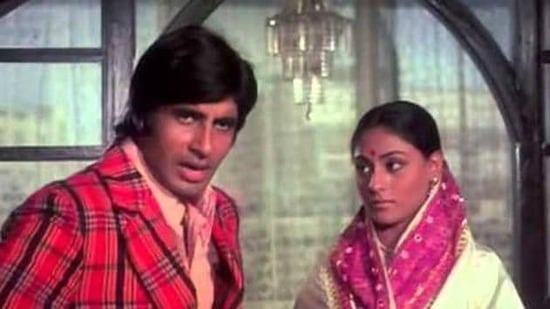
Do you have a favourite genre or are you okay writing pretty much everything?
I don’t think genre specific. I think it is the story that should determine the genre. I love everything, even period drama. Having said that, I love dark comedy, which is one of the reasons Darlings became what it did. But the story should have a voice. Even if it’s a hardcore entertainer, it still has to say something.
Let’s talk about things that did not do too well. What made you write Force 2?
See, when you write for people, a part of the vision is theirs. And Force 2 is the film that Abhinay (Deo) and Vipul (Amrutlal Shah) wanted to make. Parvez and I had an idea and they liked it. And the film got made. I totally respect Abhinay’s vision. He wanted to make that film that way and he did. As a writer, I take full responsibility for everything I have written. But you are collaborating with people on a film, especially when you are only writing and not directing it. Darlings is my voice because I have also directed the film. Of course, Parvez wrote it with me and then Vijay (Maurya) came in with dialogues, but it’s my voice and I take 100 percent responsibility for it.
What drives you to write films and not, say, poetry or fiction?
I love poetry. I wish I could write it. But I don’t know if I can. I read a lot of poetry. Maybe someday I will write a novel too. Who knows! The thing with cinema is that I just lose myself in it. I thrive on it. One of the main reasons why writing films appeals to me is also because I want to direct them. I love watching films and that’s why I want to make them. It’s simple that way.
Where do you stand on the OTT evolution?
I think it’s a great time for so many voices to come in. Because of OTT, there are so many writers and directors that have found so much opportunity. You can see so many different kinds of stories because of this. New talent gets introduced, new writers get a chance and because of it all, it gets highly competitive so you’re inspired to work harder. I think it’s great.
10 years ago, we were making a lot of films but there were only a few production houses. Right now, there are many production houses to pitch to. There are more players. And it’s advantageous for writers, especially new writers, to have them. The struggle still exists. I mean it’s not easy now just because OTT is here. But I think people should struggle a little bit, right? It adds up eventually and makes them stronger. One should just focus on work and build, build, build, build, build. It will surprise in ways one can’t imagine.
Do you think Bollywood lacks creative ambition as an industry?
I think a person should make the film they want to make. You might get less money for something or more money for something else. But who’s stopping you? There will be some struggle involved but I am sure you can eventually make what you want to. We have so many different filmmakers who do make what they want to. Look at Anurag Kashyap’s films. He makes what he wants to and how he wants to. It’s the same with Zoya Akhtar; even Imtiaz Ali and Raju Hirani. These guys have a voice of their own. So if anyone believes that they would like to see something else, they can attempt to change that by making it. If you want to make a hatke film, then write it. Dev D was made, right? That, too, with Abhay Deol. With Darlings, I was lucky that someone like Alia saw the merit in the script. She is also a good actor. Darlings is not a conventional film. It was great that she backed it. Once you have someone like Alia on board, the producers feel more secure about putting their money in.
Some advice you’d like to offer to young writers.
Write, work hard, take risks. It’s simple. Respect your voice, trust yourself. Sometimes, you write a script that you feel is coming from within but then you tweak it considering what is working at the moment. I suggest you don’t do that. Because nobody really knows what the audience will like or won’t like. Stick to what you’ve got. Also, always remember that nothing is easy.
Do you think screenwriting is better self-taught or studied formally?
I think both ways work. I, for one, never went to film school and learnt mainly from watching films. You know, there is a lot of material - Syd Field and so many others. One must read as much of it as possible. You can’t reject something you haven’t read. Get exposed to everything and then figure out what’s working for you. You can learn so much by reading screenplays or even interviews of writers like Aaron Sorkin, for example. I also did a short summer course at FTII, which I learnt a lot from. Education is great. Just remember that there’s a lot to learn on the job as well. If you assist writers, you get to learn a lot about not just writing scripts but also about pitching them. You gain in confidence and lose your fears. It’s all important.
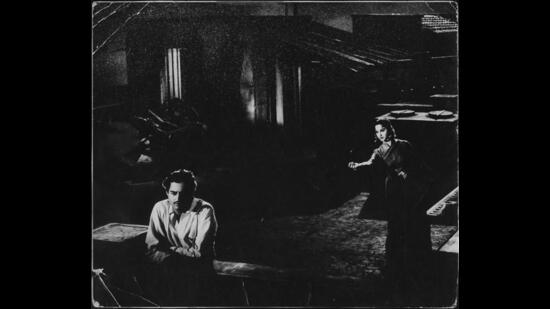
Does the gender of a writer influence their work?
Representing women in a certain way has got nothing to do with gender. Through the years, we have seen many male filmmakers representing women in a beautiful way. However, maybe the gaze of looking at any character would be different for a woman. When I met women for Darlings, maybe they were more open when they talked to me; maybe as a woman, I would understand and empathise with some of the things they said in a different way. It’s a patriarchal society and maybe women can sometimes see things that men don’t. I mean, why Alia holds on to Vijay Verma despite the violence is because she has grown up without a father or strong male presence so she holds onto the first man she is with. These are things that I am not saying a man cannot see but maybe because I am a woman, I can see sooner. If a man made Darlings, of course, he would make it differently but that’s true for any film. In essence, I don’t think artists have genders. Men have a feminine side to them and women have a masculine side as well. I mean look at Guru Dutt, for example, for the way he handles women characters or the character of Charulata that Satyajit Ray developed – how utterly beautiful is that!
What are your favourite films and shows and who are your favourite filmmakers?
Earlier, in college, it was more of world cinema for me - Federico Fellini, Krzysztof Kieslowski, Stanley Kubrick, Jean Luc Godard... Kubrick is all wow for me. A Clockwork Orange, Dr Strangelove, Eyes Wide Shut, everything. At the same time, I used to also watch Hrishikesh Mukherjee, Guru Dutt, Satyajit Ray. Then I started watching a lot of Hollywood films. I love the Coen Brothers. I love Tarantino. Pulp Fiction is a film I have watched many times over and admire it. I also love American Beauty. I like Sam Mendes’ work. I love Revolutionary Road. Who’s Afraid of Virginia Wolf blew my mind. Who’s Afraid of Virginia Wolf is as dark comedy as it gets. I love Asgar Farhadi’s work. Hero, his latest film, is what I watched last and it was out of this world. I like A Separation and About Elly and his other films as well. Then of course there are gurus like Spielberg and Scorsese that you learn from. Then, Elia Kazan’s classic A Streetcar Name Desire is what I love a lot. I like Parasite a lot. Then, a lot of Paul Thomas Anderson’s work. Then, Noah Baumbach’s A Marriage Story. And who did I miss? I could go on.
Among shows, The West Wing is the best thing I have ever seen. I like True Detective. I love Better Call Saul. I think it’s a very good show. I love Black Mirror and Fargo as well. Then Mad Men, House of Cards. I like a lot of HBO shows. I like Squid Games as well. It was fun to watch. Then Succession – that’s a show everybody likes. It’s like Eternal Sunshine of the Spotless Mind – I don’t know anyone who doesn’t like it. What a film!
Is there a film you wish you had written or made?
Well, there are films I love as I told you. But no, I don’t wish I had made any other films because if I did, I would make them differently.
If you had 100 crore rupees, what would you make?
I’d make the film I am working on. I would not make a film just because I have 100 crores. I would make what I want to and if I don’t end up using all the money, I’d give it back.
Mihir Chitre is the author of two books of poetry, ‘School of Age’ and ‘Hyphenated’. He is the brain behind the advertising campaigns ‘#LaughAtDeath’ and ‘#HarBhashaEqual’ and has made the short film ‘Hello Brick Road’.
Continue reading with HT Premium Subscription




